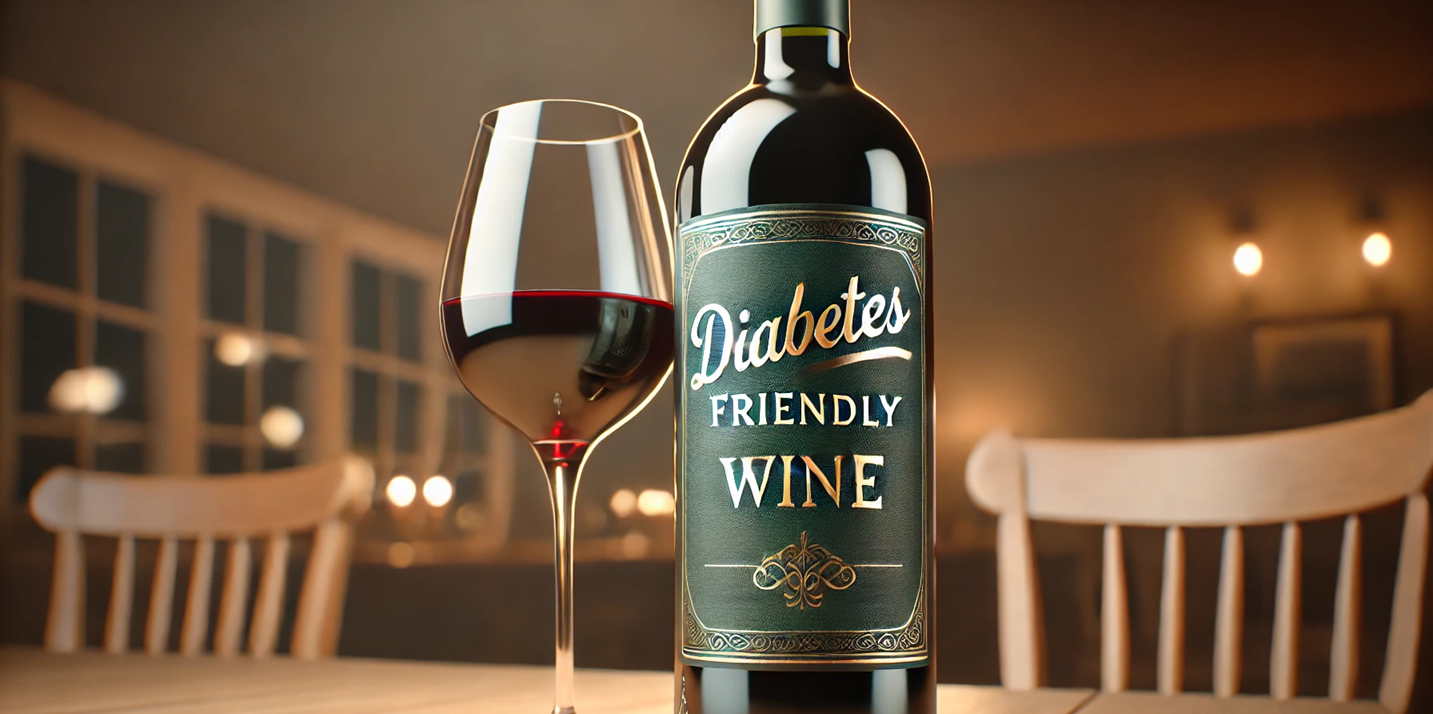“Hi, I’m Veeno Bonovinotte—welcome to The Wines Podcast! Today, we’re diving into an important question that a lot of people ask: Can people with diabetes drink wine? Let’s uncork the truth and find out!”
If you or someone you know has diabetes, you’ve probably wondered: Is wine off the table? Can it affect blood sugar levels? Is there a safe way to enjoy it? Wine is a beverage meant to be savored, but
when health is involved, it’s natural to be cautious. So, let’s break this down.
How Does Wine Affect Blood Sugar?
First, the good news—moderate wine consumption may not necessarily cause wild blood sugar spikes. In fact, studies suggest that dry red and white wines tend to have lower sugar content compared to other alcoholic drinks, which is a plus for people with diabetes.
Why? Because fermentation converts most of the grape sugar into alcohol. Unlike beer or sweet cocktails, which can send blood sugar levels soaring, dry wines contain minimal residual sugar, making them a better option.
But here’s the kicker—alcohol can also lower blood sugar levels, sometimes unpredictably. Your liver prioritizes metabolizing alcohol over producing glucose, which can lead to hypoglycemia (low blood sugar), especially if you’re on insulin or certain diabetes medications.
So, while wine won’t necessarily spike your sugar, it could drop it—sometimes dangerously low.
The Safe Way to Enjoy Wine if You Have Diabetes
If you do want to enjoy a glass of wine responsibly, here are some golden rules:
-
Always pair wine with food. Drinking on an empty stomach increases the risk of blood sugar drops. A meal with fiber, protein, or healthy fats can help slow alcohol absorption.
-
Choose dry wines over sweet ones. Stick to varieties like Cabernet Sauvignon, Pinot Noir, Chardonnay, or Sauvignon Blanc—these have less residual sugar than, say, Moscato or dessert wines.
-
Monitor your blood sugar. If you’re new to drinking wine with diabetes, check your levels before and after drinking to see how your body reacts.
-
Limit intake. The American Diabetes Association suggests no more than one glass per day for women and two for men.
-
Stay hydrated. Alcohol can dehydrate you, which can impact blood sugar regulation. Always alternate wine with water.
Wine Types to Avoid
Not all wines are created equal, and if you have diabetes, you’ll want to steer clear of:
- Sweet dessert wines like Port or Sherry—they have higher sugar content.
- Flavored or fruit-infused wines—these can pack added sugars.
- Cheap mass-market wines that sometimes contain hidden sugar for consistency.
Best Wine Choice for People with Diabetes?
For the best balance of enjoyment and blood sugar stability, opt for a dry red wine like Pinot Noir or Merlot. They contain antioxidants like resveratrol, which some studies suggest may actually improve insulin sensitivity.
Product Recommendation: A Great Dry Red Wine
If you’re looking for a great low-sugar, high-quality red, check out La Crema Sonoma Coast Pinot Noir—it’s well-balanced, dry, and smooth. Highly rated, and it won’t overload your sugar intake.
Final Thoughts
So, can people with diabetes drink wine? Yes—but with caution. Choose dry varieties, monitor your blood sugar, and drink in moderation.
If today’s episode helped you, share it with a fellow wine lover! And don’t forget to check out Bonovinotte.com for more great wine insights.
“Join me next time as we uncork another wine mystery. Cheers!”
